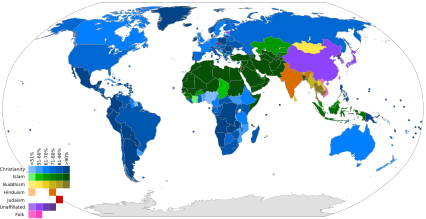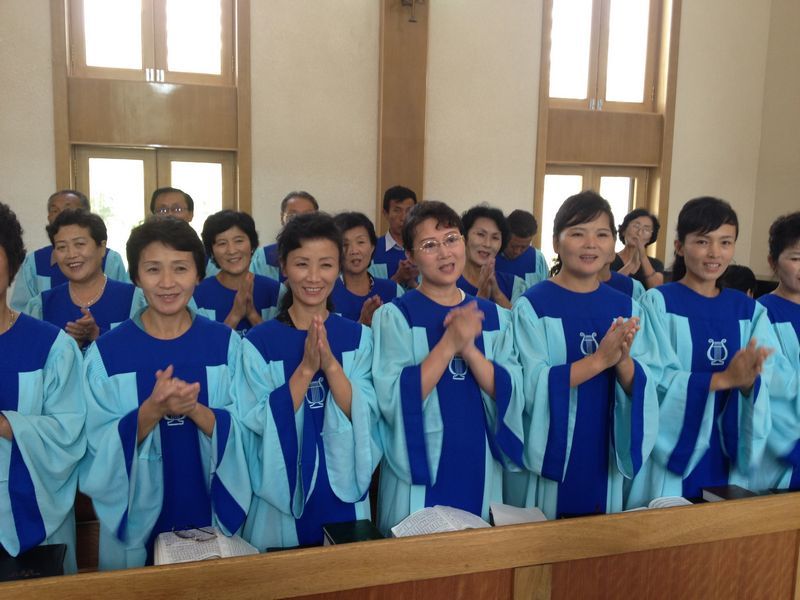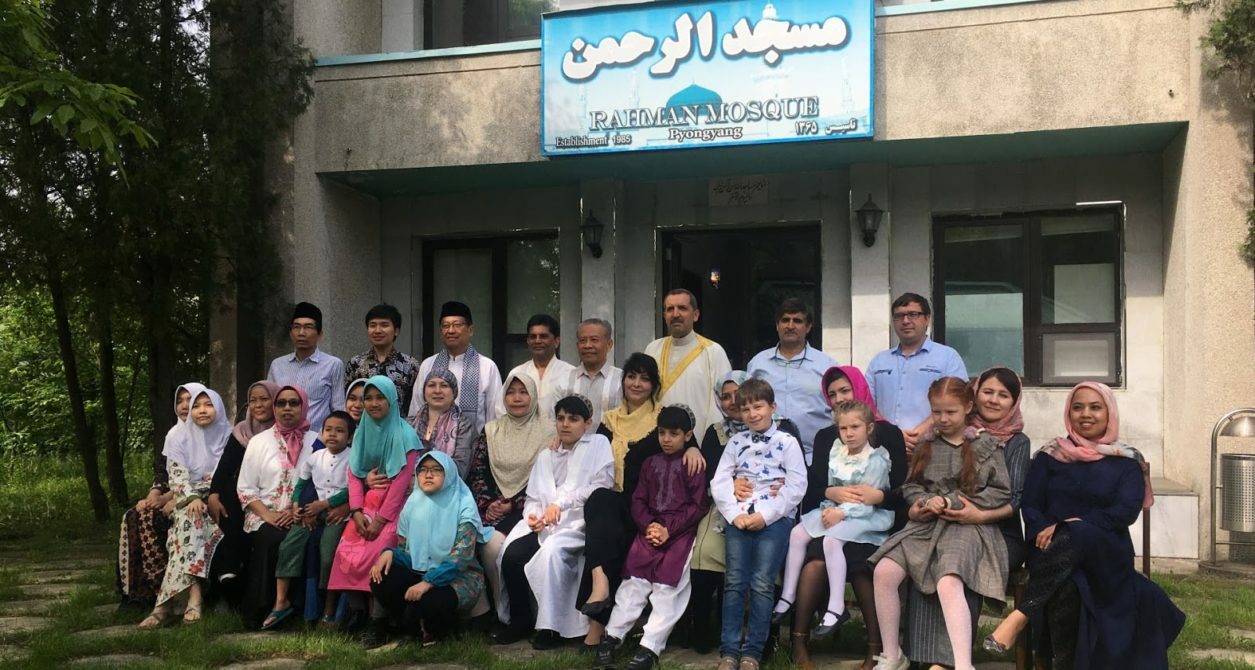More languages
More actions
(Created) Tag: Visual edit |
PuzzledFox99 (talk | contribs) No edit summary |
||
| Line 22: | Line 22: | ||
== References == | == References == | ||
<references /> | |||
[[Category:Religion]] | [[Category:Religion]] | ||
[[Category:Idealism]] | |||
Revision as of 00:15, 11 September 2024

Religion is a historical phenomenon that develops throughout different stages of human society. The first religions developed during primitive communism and reflected humans' inability to understand natural phenomena at their low level of production and continued into class society, where the ruling class often uses it to control the masses.
Religion continues to exist long after socialism is created but is predicted to eventually disappear under communism. Attempts to forcibly suppress religion under socialism are ultra-leftist and counterrevolutionary.[1]
Under socialism
China
The Communist Party of China supports freedom of religious belief, meaning that atheists have a right to become believers and vice versa. It supports separation of church and state and believes religion is a personal choice. Religion is not allowed in schools and it is illegal to force minors to join a church, temple, or monastery. Religious institutions lack the oppressive privileges that they had under feudalism.[1]
Korea


The DPRK's constitution guarantees freedom of religious belief and allows citizens to vote and run for office regardless of religion. However, "Religion must not be used as a pretext for drawing in foreign forces or for harming the State or social order."[2]
See also
References
- ↑ 1.0 1.1 Central Committee of the Communist Party of China (1982). The Basic Viewpoint and Policy on the Religious Question during Our Country's Socialist Period. [PDF]
- ↑ 14th Supreme People's Assembly (2019). Socialist Constitution of the Democratic People's Republic of Korea: 'Fundamental Rights and Duties of Citizens'.
